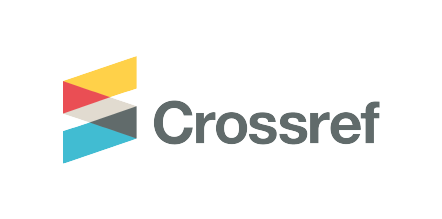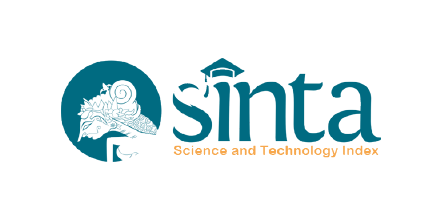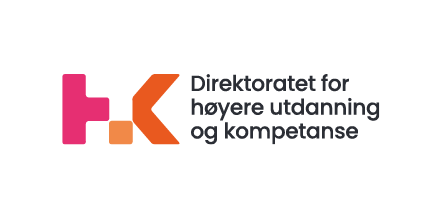Hubungan Konsep Diri dan Efikasi Karir pada Remaja Akhir Laki-laki Penyandang Disabilitas
DOI:
https://doi.org/10.21776/ub.ijds.2015.02.01.03Abstract
Bekerja dan memiliki karir adalah bagian dari perkembangan seseorang untuk memenuhi kebutuhan hidup, termasuk penyandang disabilitas. Memilih karir bukan hal yang mudah karena menyangkut kemandirian seorang individu dan masa depan terlebih lagi pada penyandang disabilitas mereka memiliki hambatan dan perlakuan diskriminatif. Efikasi karir merupakan kepercayaan seorang individu mengenai kemampuannya sehubungan dengan pembuatan keputusan dalam karir. Salah satu hal yang mempengaruhi karir adalah konsep diri. Konsep diridapat diaplikasikan dalam pemilihan karir agar seseorang dapat memilih karir yang sesuai dengan dirinya. Penelitian ini menggunakan pendekatan kuantitatif. Hasil perhitungan menunjukkan adanya hubungan positif yang signifikan antara konsep diri dan efikasi karir pada remaja laki-laki penyandang disabilitas. Ini berarti bahwa, penyandng disabilitas yang menghendaki bekerja juga harus memilih jenis pekerjaan mereka sesuai dengan apa yang mampu mereka lakukan dan mereka inginkan.References
Adioetomo, S.M., Mont, D., & Irwanto (2014). Persons with Disabilities in Indonesia: Empirical Facts and Implications for Social Protection Policies, Jakarta, Indonesia, Demographic Institute, Faculty of Economics, University of Indonesia in collaboration with Tim Nasional Percepatan Penanggulangan Kemiskinan (TNP2K).
Ali, M. & Asrori, M. (2004). Psikologi Remaja; Perkembangan Peserta Didik. Jakarta: Bumi Aksara.
Betz, N. E., Klein, K. L., & Taylor, K. M. (1996). Evaluation of a short form of the Career Decision-Making Self-Efficacy Scale. Journal of Career Assessment, 4, 47-57.
Bozgeyikli, H., Bacanli, F. & Dogan, H. (2009). Examination of 8th grade elementary school students’ career decision making self-efficacy predictors. [Versi Elektronik]. Selçuk ÜniversitesiSosyalBilimlerEnstitüsüDerg isi, 21, 125-136.
Budiman, A. (1982) Pembagian Kerja Secara Seksual: Sebuah Pembahasan Sosiologis tentang Peran Wanita di dalam Masyarakat. Jakarta: PT Gramedia.
Brown & L. Brooks (eds.), Career choice and development: Applying contemporary approaches to practice (3rd ed., pp-179-232) San Fransisco: Jossey-Bass
Cobb, N. J. (2001). Adolescence: Continuity, change, and diversity. (Ed. ke-4).London: Mayfield Publishing Company.
Craig, G. J. & Don. B. (1999). Human development. (Ed. ke-8). New Jersey: Prentice Hall.
Crites, J. O. (1971) The maturity of vocational attitudes in adolescence. Washington, DC: American Personnel and Guidance Association.
Dugan. M. (2003). Living with hearing loss. Washington: Gallaudet University press.
Gottfredson, L. S. (1981) Circumscription and compromise: A development theory og occupational aspirations28 [Monograph]. Journal of Counseling Psychology, 28, 545-579.
Gottfredson, L. S. (1996). Gottfredson’s theory of circumscription and compromise. Brown, D. & Brooks, L. (Ed. 3). Career choice and development. (hlm 179-232). CA: Jossey-Bass.
Greenhaus, J. H. & Callanan, J. H. (2006). Encyclopedia of career development. (Jilid Kesatu). USA: Sage.
Gunarsa, Y. S. D. & Gunarsa, S. D. (1991). Psikologi Remaja. Jakarta: Gunung Mulia.
Leung, S. A. (1999). Quality education: A career development and self-concept approach. [Versi Elektronik]. Hong Kong: The Chinese University of Hong Kong.
Luzzo, D. A. & Severy, L. E. (2009). Making Career Decisions That Count: A practical guide. (Ed. ke-3). New Jersey: Prentice Hall.
Irwanto, Kasim, E.R., Fransiska, A., Lusli, M., & Siradj, O.(2011). The situation of persons with disabilities in Indonesia: a desk review. Jakarta: Puska Disabilitas, FISIP-UI, and AusAid.
Irwanto, Supriyanto, E., Julianto, M.J., Wirya, E., Sagita, C. (2012). Investing in ability: Rapid assessment of living conditions of persons with disabilities in Sukoharjo District, Central Java –focusing on access to social protection. Manuscript for the Ministry of National Development and GIZ.
Ittreyah, M. & Kumar, N. (2007). The actual and ideal self-concept in disabled children, adolescents, and adults. Psychology and Developing Societies, 19(1), 81-112.
Marsh, H. W., Byrne, B. M, & Shavelson, R. (1988). A multifaceted academic self-concept: Its hierarchical structure and its relation to academic achievement. Journal of Educational Psychological, 80, 363-380.
Mangunsong, F. (2009). Psikologi dan Pendidikan Anak Berkebutuhan Khusus (Jilid Kesatu). Depok: LPSP3 UI.
Meissner, A. L. & Thoreson, R. W. (1967). Relation of self-concept to impact and obviousness of disability among male and female adolescents. [Versi Elektronik]. Perceptual and Motor Skills, 24, 1099-1105.
Mishra, V. (2013). A study of self-concept in relation to ego-strength of sighted and visually impaired students. [Versi Elektronik]. International Journal on New Trends in Education and Their Implications. 4(1), 203-207.
Mishra, V. & Singh, A. (2012). A comparative study of self-concept and self-confidence of sighted and visually impaired children. [Versi Elektronik]. EXCEL International Journal of Multidisciplinary Management Studies. 2(2), 148-157.
Nurrachman, N., Shanti, T. I., Pandia, W. S. S., Suci, E. S. T., Hidajat, L. L., Sukmaningrum, E., Partasari, W. D., Windyaningsih, M. M. T. W. D., Wibawa D. S. (2011). Psikologi Perempuan: Pendekatan Kontekstual Indonesia. Yogyakarta: Pohon Cahaya.
Orange, L. M. (1997). Skills development for multicultural rehabilitation counseling: a quality of life perspective. Diunduh pada tanggal 12 Februari 2015 dari www.dinf.ne.jp/doc/english/Us_Eu/ada_e/pres_com/pres-dd/orange.html
Osipow, S. H. (1983). Theories of career development (Ed. ke-3) Englewood Cliffs, NJ: Prentice Hall.
Pandia, W. S. S. (2007). Status Identitas Ego, Orientasi Karier, dan Aspirasi Karier Remaja Perempuan. [Versi Elektronik]. Jurnal Psikologi, 20(2), 29-46.
Penyajian Pokok-pokok Hasil Riset Kesehatan Dasar 2013. Jakarta: Badan Litbang Kemenkes RI. Diunduh dari www.litbang.depkes.go.id
Pudjijogyanti, C. R. (1993). Konsep Diri Dalam Pendidikan. Jakarta: Arcan.
Rice, F. P. & Dolgin, K. G. (2008) The adolescent: development, relationships, and culture. (Ed. ke-12) Boston: Pearson
Santrock, J. W. (2009). Life-span development.(Ed. ke-12)New York: McGraw-Hill.
Sarwono, S. W. (2006). Psikologi Remaja. Jakarta: RajaGrafindo Persada.
Shavelson, R., Hubner, K. J., &Stanton, G. C. (1976). Self-concept: Validation of construct interpretations.[Versi Elektronik].Review of Educational Research, 46, 407-441.
Seligman, L. (1994). Developmental career counseling and assessment. (Ed. ke-2). California: Sage.
Silva-Ramirez, E.L., Pino-Mejías, R., López-Coello, M., Cubiles-de-lavega, M. (2011). Missing value imputation on missing completely at random data using multilayer perceptrons. [Versi Elektronik]. Neural Networks. 24(2011), 121-129.
Super, D. E. (1969). Vocational development theory. [Versi Elektronik]. The Counseling Psychologist, 1, 2-30.
Super, D. E. (1990). A life-span, life-space approach to career development. In D. Brwon & L. Brooks (Eds.), Career choice and development: Applying contemporary approaches to practice (pp. 192-239). San Fransisco: JosseyBass.
Super, D. E., & Overstreet, P. L. (1960). The vocational maturity of ninthgrade boys. New York: Teachers College Press.
Taylor, K.M. & Betz, N.E. (1983). Applications of self-efficacy theory to the understanding and treatment of career indecision.[Versi Elektronik].Journal of Vocational Behavior, 22, 63-81.
Trani, J.-F. and Loeb, M. (2012), “Poverty and disability: A vicious circle? Evidence from Afghanistan and Zambia”. J. Int. Dev., 24: S19–S52. doi: 10.1002/jid.1709
UNICEF (2008). Its about ability. An explanation of CRPD. New York: UNICEF and A World Enabled - Pineda Foundation.
UNICEF (2013). The State of The World’s Children. Children with disabilities. New York: UNICEF
Vernon, A. (1993). Counseling children and adolescents. Denver: Love.
WHO and World Bank, 2011. World Report on Disability 2011. WHO: Malta.
Downloads
Published
How to Cite
Issue
Section
License
Copyright (c) 2015 Penny Handayani, Adeline Adeline, Irwanto Irwanto

This work is licensed under a Creative Commons Attribution-NonCommercial 4.0 International License.















